 W
WCount Gyula Andrássy de Csíkszentkirály et Krasznahorka was a Hungarian statesman, who served as Prime Minister of Hungary (1867–1871) and subsequently as Foreign Minister of Austria-Hungary (1871–1879). Andrássy was a conservative; his foreign policies looked to expanding the Empire into Southeast Europe, preferably with British and German support, and without alienating Turkey. He saw Russia as the main adversary, because of its own expansionist policies toward Slavic and Orthodox areas. He distrusted Slavic nationalist movements as a threat to his multi-ethnic empire.
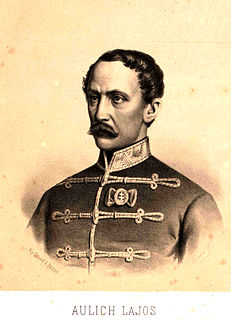 W
WLajos Aulich was the third Minister of War of Hungary.
 W
WAlbert Bartha de Nagyborosnyó was a Hungarian military officer and politician, who served as Minister of Defence twice: in 1918 and, almost thirty years later, between 1946 and 1947.
 W
WVitéz Károly Bartha de Dálnokfalva was a Hungarian military officer and politician, who served as Minister of Defence between 1938 and 1942. During World War I, he had several high commander offices in Budapest and Trieste. In 1919, he fought against the armies of Czechoslovakia and Romania. After the fall of the Hungarian Soviet Republic, Bartha joined the National Army led by Miklós Horthy. Béla Imrédy appointed him as Minister of Defence and Bartha kept his position in the ensuing governments until 1942.
 W
WIstván Bata was a Hungarian military officer and politician who served as Minister of Defence from 1953 to 1956. During the Hungarian Revolution of 1956 he divided Budapest into three military districts and gave an order to defeat the revolution. On 26 October 1956 Bata was relieved of all of his functions. Three days later he escaped to the Soviet Union. He negotiated with János Kádár and he wanted to organize a military dictatorship after the fall of the revolution. On 16 November Bata was expelled from the party because of his Stalinist past. Later he returned to Hungary, where he worked for the Budapest Transport Company.
 W
WCount Lajos Batthyány de Németújvár was the first Prime Minister of Hungary. He was born in Pozsony on 10 February 1807, and was executed by firing squad in Pest on 6 October 1849, the same day as the 13 Martyrs of Arad.
 W
WSándor Belitska was a Hungarian military officer and politician, who served as Minister of Defence between 1920 and 1923. During the World War I he fought on the Eastern Front. After the war he lived as a nobleman, he was a member of the National Casino and Vice-Chairman of the Royal Hungarian Car Club, leader of the Dove-shooter Association and Director of the Sports Club of Margitsziget.
 W
WTibor Benkő is a Hungarian military officer and government official. He currently serves as Minister of Defence, and he previously was a four-star general in the Hungarian Defence Forces, serving as Chief of the Defence Staff from 6 June 2010 until 16 May 2018.
 W
WKároly Beregfy was a Hungarian military officer and politician, who served as Minister of Defence in the 1944–45 Arrow Cross Party government.
 W
WFerenc Bihar de Barabásszeg was a Hungarian military officer and politician, who served as Minister of Defence between 1905 and 1906, during the Hungarian Constitutional Crisis of 1905. After the fall of the cabinet of Géza Fejérváry he retired.
 W
WVilmos Böhm or Wilhelm Böhm was a Hungarian Social Democrat and Hungary's ambassador to Sweden after World War II. He was born in a middle class Jewish family. His parents were Lipót Böhm and Rozália Rosenzweig. After graduation from vocational secondary school, he became a mechanist. Böhm was fluent German speaker since his early childhood. During the 1900s, he worked as a technical officer. On 26 December 1905, he married Mária Steiner, who was also of Israelite religion, daughter of Ignác Steiner and Franciska Schwarz. He joined the labor movement as a young worker and became secretary of the National Federation of Iron and Metal Workers. In 1911, he was elected to the Trade Union Council. He belonged to the center of MSZDP. During the First World War he achieved rank as a lieutenant. In 1918, he was arrested during the general strike. Böhm was actively involved in the Aster Revolution of 1918, and in January 1919 he became Minister of Defense in the Berinkey Government. As Secretary of State, he invited the war hero Aurél Stromfeld to the military chief of staff. He actively participated in the unification congress of the Social Democrat Party and the Communist party. In April Böhm became the commander-in-chief of the Red Army. In May 1919 he resigned, but his resignation was not accepted by government. Böhm remained a member. In July 1919, he was appointed ambassador in Vienna. He is supposedly mentioned in the Venona telegrams as an information source of the Soviets during the war. After the fall of the Hungarian Soviet republic, he was forced to emigrate and became the leader of a group of emigrant social democrats, together with Zsigmond Kunfi and Sándor Garbai.
 W
WCount Károly Csáky de Körösszeg et Adorján was a Hungarian military officer and politician, who served as Minister of Defence between 1923 and 1929. During World War I he fought on the Eastern Front, where he seriously injured. After the establishment of the Hungarian Soviet Republic he demobilized. In 1923 István Bethlen appointed him as Minister of Defence. As a minister he favoured the Allies examining the cessation of its commission's function, and he covered the gun-running being directed into the country. He also supported the Austrian Heimwehr in the interest of a right wing extremist military coup. In 1929 he resigned from his position. His father was Albin Csáky, a former Minister of Education.
 W
WVitéz Lajos Csatay de Csataj was a Hungarian military officer and politician, who served as Minister of Defence between 1943 and 1944.
 W
WLajos Czinege (1924–1998) was a Hungarian military officer and politician, who served as Minister of Defence from 1960 to 1984.
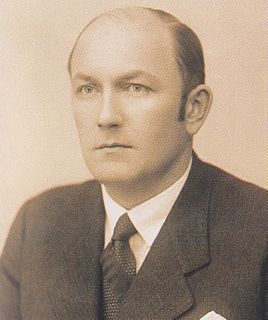 W
WLajos Dinnyés was a Hungarian politician of the Smallholders Party who served as the last pre-communist Prime Minister of Hungary from 1947 to 1948.
 W
WMihály Farkas was a Hungarian Communist politician.
 W
WBaron Géza Fejérváry de Komlóskeresztes was a Hungarian general who served as the prime minister in a government of bureaucrats appointed by King Franz Joseph during the Hungarian Constitutional Crisis of 1903–1907.
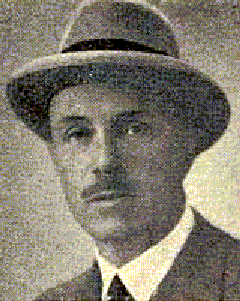 W
WCount Sándor Ágost Dénes Festetics de Tolna was a Hungarian nobleman and cabinet minister who later became an advocate of Nazism in Hungary.
 W
WIstván Friedrich was a Hungarian politician, footballer and factory owner who served as Prime Minister of Hungary for three months between August and November in 1919. His tenure coincided with a period of political instability in Hungary immediately after World War I, during which several successive governments ruled the country.
 W
WLajos Für was a Hungarian politician and historian, who served as Minister of Defence between 1990 and 1994. From 1994 to 1996 he was also chairman of the Hungarian Democratic Forum (MDF), the ruling conservative party led by late Prime Minister József Antall to his death in 1993.
 W
WGyula Gömbös de Jákfa was a Hungarian military officer and politician, and served as Prime Minister of Hungary from 1 October 1932 until his death on 6 October 1936.
 W
WArtúr Görgei de Görgő et Toporc was a Hungarian military leader renowned for being one of the greatest generals of the Hungarian Revolutionary Army.
 W
WJózsef Haubrich was a Hungarian politician, who served as Minister of Defence twice in 1919. He was one of the leaders of the Hungarian Social Democratic Party. During the Hungarian Soviet Republic he was a member of the communist cabinet, military commander of Budapest. After the fall of the communists, he was sentenced to death by the Regency. He got into the Soviet Union with the occasion of a prisoner exchange where he lived as an ironwork worker for the remaining part of his life.
 W
WBaron Samu Hazai was a Hungarian military officer and politician of Jewish origin, who served as Minister of Defence of Hungary between 1910 and 1917.
 W
WDr Csaba Hende is a Hungarian politician who served as Minister of Defence of Hungary from 29 May 2010 to 9 September 2015 when he resigned.
 W
WMiklós Horthy de Nagybánya was a Hungarian admiral and statesman, who became the regent of Hungary. He served as regent of the Kingdom of Hungary between World Wars I and II and throughout most of World War II, from 1 March 1920 to 15 October 1944. He was styled His Serene Highness the Regent of the Kingdom of Hungary, Hungarian: Ő Főméltósága a Magyar Királyság Kormányzója.
 W
WKároly Janza was a Hungarian military officer and politician, who served as Minister of Defence during the Hungarian Revolution of 1956. He tried to get the insurgents to the capitulation but he could not achieve this.
 W
WLajos Jekelfalussy was a Hungarian military officer and politician, who served as Minister of Defence between 1906 and 1910. His grandfather was József Jekelfalussy royal chamberlain.
 W
WFerenc Juhász in Nyíregyháza, is a former Minister of Defence for Hungary. From 1990, he has been a member of the Hungarian Socialist Party (MSZP), and from 2000 the vice chairman of the party. He was the Minister of National Defense in Hungary from 27 May 2002 to 9 June 2006. He was also Member of Parliament between 1994 and 2014.
 W
WGyörgy Keleti was a Hungarian politician, who served as Minister of Defence between 1994 and 1998.
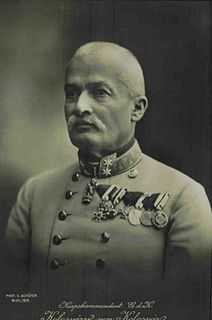 W
WDezső Kolossváry de Kolosvár was a Hungarian military officer in the Austro-Hungarian service and (briefly) a politician.
 W
WVitéz Miklós Kozma de Leveld was a Hungarian politician, who served as Interior Minister between 1935 and 1937. He was also Minister of Defence for a short time in the cabinet of Gyula Gömbös. He attended the Ludovika Academy and fought in World War I. He was the supporter of Miklós Horthy from the begins. He worked as head of the Magyar Távirati Iroda (MTI) from 1922 until his death. He did not agree with the Prime Minister Kálmán Darányi's moderate policy, so he resigned the position of the Minister of the Interior.
 W
WBéla Linder, Hungarian colonel of artillery, Secretary of War of Mihály Károlyi government, minister without portfolio of Dénes Berinkey government, military attaché of Hungarian Soviet Republic based in Vienna, finally the mayor of Pécs during the period of Serb occupation.
 W
WMenyhért Count Lónyay de Nagylónya et Vásárosnamény was a Hungarian politician who served as Prime Minister of Hungary from 1871 to 1872.
 W
WPál Maléter was the military leader of the 1956 Hungarian Revolution.
 W
WGeneral Lázár Mészáros (English: Lazarus Mészáros), was the Minister of War during the 1848 Hungarian Revolution.
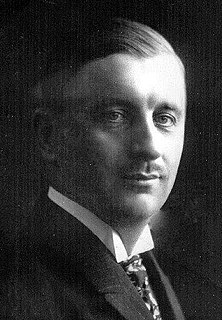 W
WFerenc Münnich was a Hungarian Communist politician who served as Chairman of the Council of Ministers of the People's Republic of Hungary from 1958 to 1961.
 W
WVilmos Nagy de Nagybaczon, was a commanding general of the Royal Hungarian Army (1920–1945), Minister of Defence, a military theorist and historian.
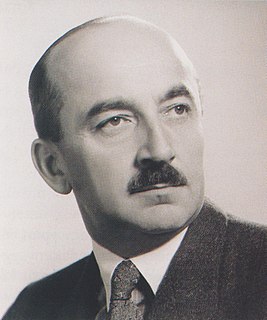 W
WFerenc Nagy was a Hungarian politician of the Smallholders Party who served as Prime Minister of Hungary from 1946 until his forced resignation in 1947. He was also a Speaker of the National Assembly of Hungary and a member of the High National Council from 1945 to 1946. Nagy was the second democratically elected prime minister of Hungary, and would be the last until 1990 not to be a Communist or fellow traveler. The subsequent Hungarian prime minister Imre Nagy was unrelated to him.
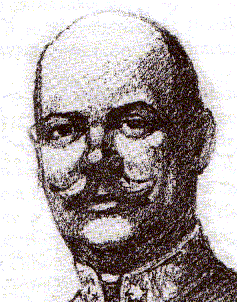 W
WSándor Nyiri (17 November 1854 – 5 May 1911) was a Hungarian military officer and politician, who served as Minister of Defence of Hungary between 1903 and 1905. From 1899 he was the commander of the Ludoviceum. In 1905 he won a mandate to the House of Representatives as a politician of the Liberal Party. On 19 February 1906 he dissolved the Hungarian Assembly with the police forces quasi the Constitutional Crisis of 1905's closing act.
 W
WIstván Oláh was a Hungarian military officer and politician, who served as Minister of Defence from 1984 until his death.
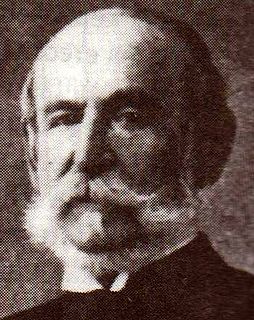 W
WBaron Béla Orczy de Orczi was a Hungarian politician and freedom fighter, who served as Interior Minister between 1887 and 1889. He was also Minister of Home Defence for several months in 1884. He took part in the Hungarian Revolution of 1848, he fought against the rebelling Serbs in the area of Délvidék. He was the de facto Minister of Foreign Affairs between 1879 and 1890. His paternal grandfather was the famous poet Lőrinc Orczy.
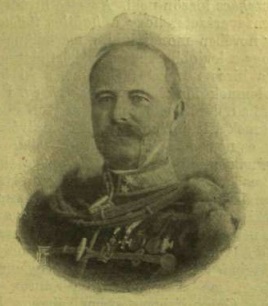 W
WBéla Pap de Szill was a Hungarian military officer and politician, who served as Minister of Defence from March to April 1906, during the Hungarian Constitutional Crisis of 1905.
 W
WCount Gedeon Ráday de Ráda was a Hungarian soldier and politician, who served as Minister of Defence from 1882 until his death. As a soldier he took part in the Second Italian War of Independence and the Austro-Prussian War. He also fought in the Battle of Königgrätz. Between 1862 and 1865 he was the adjutant of Emperor Franz Joseph. From 1875 Ráday was a representative of the Independent Party but later joined to the Liberal Party. After the unexpected death of Béla Szende he was appointed as Minister of Defence, but similarly to his predecessor Ráday also died under his office holding. His son was Gedeon VII Ráday who became Interior Minister during the Regency.
 W
WVitéz Jenő Rátz de Nagylak was a Hungarian military officer and politician, who served as Minister of Defence in 1938.
 W
WGéza Révész was a Hungarian military officer and politician, who served as Minister of Defence between 1957 and 1960. During the Hungarian Soviet Republic and the Second World War he fought in the Red Army. From 1960 to 1963 he was the Hungarian ambassador to the Soviet Union.
 W
WFerenc Schnetzer was a Hungarian military officer and politician, who served as Minister of Defence in 1919, during the Romanian occupation of Hungary. He took part in the Friedrich's coup against cabinet of Gyula Peidl.
 W
WIstván Simicskó is a Hungarian politician of the governing Fidesz–KDNP coalition. He has been a Member of the National Assembly since 1998. He served as Minister of Defence from 10 September 2015 to 18 May 2018.
 W
WVitéz Károly Soós de Bádok was a Hungarian military officer and politician, who served as Minister of Defence in 1920. He participated in the working of revolutionary counter-government organizations on Szeged against the Hungarian Soviet Republic. Soós became the first Chief of Army Staff of the National Army.
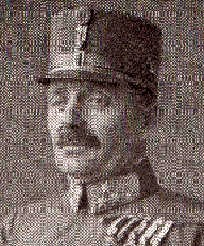 W
WIstván Sréter de Szanda was a Hungarian military officer and politician, who served as Minister of Defence in second half of 1920.
 W
WJános Szabó is a Hungarian politician, who served as Minister of Defence between 1998 and 2002.
 W
WImre Szekeres is a Hungarian politician of the Hungarian Socialist Party (MSZP) and former Minister of Defense.
 W
WBéla Szende de Keresztes was a Hungarian politician, who served as Minister of Defence from 15 December 1872 until his death.
 W
WJózsef Szlávy de Érkenéz et Okány was a Hungarian politician who served as prime minister from 1872 to 1874, as Speaker of the House of Representatives of Hungary from 3 April 1879 to 12 April 1880 and as Speaker of the House of Magnates from 19 September 1894 to 3 October 1896.
 W
WVitéz Baron Sándor Szurmay de Uzsok was a Hungarian military officer and politician, who served as Minister of Defence for the Hungarian portion of the Dual Monarchy of Austria-Hungary between 1917 and 1918.
 W
WJenő Tombor was a Hungarian military officer and politician, who served as Minister of Defence from 1945 until his death. During the Hungarian Soviet Republic he planned a successful campaign against the rebel Czechoslovaks with Aurél Stromfeld.
 W
WPéter Veres was a Hungarian politician and writer, who served as Minister of Defence from 1947 to 1948.
 W
WJános Vörös was a Hungarian military officer and politician, who served as Minister of Defence in the unofficial Interim National Government which led by Béla Miklós. He fought in the First World War at the Eastern Front and the Italian Campaign. He was appointed as Chief of Army Staff on 19 March 1944, when the Nazis occupied Hungary. Later Vörös joined to the Red Army which arrived to Hungary's eastern border.
 W
WSándor Wekerle was a Hungarian politician who served three times as prime minister. He was the first non-noble to hold the office in Hungary.